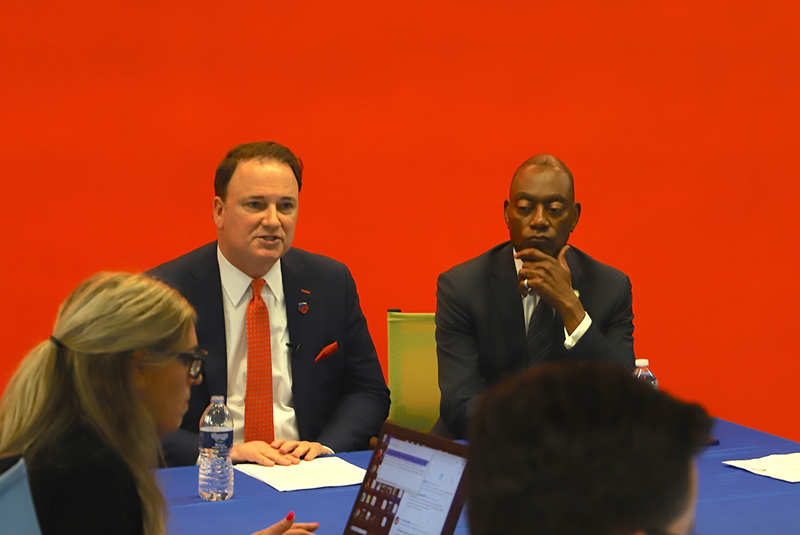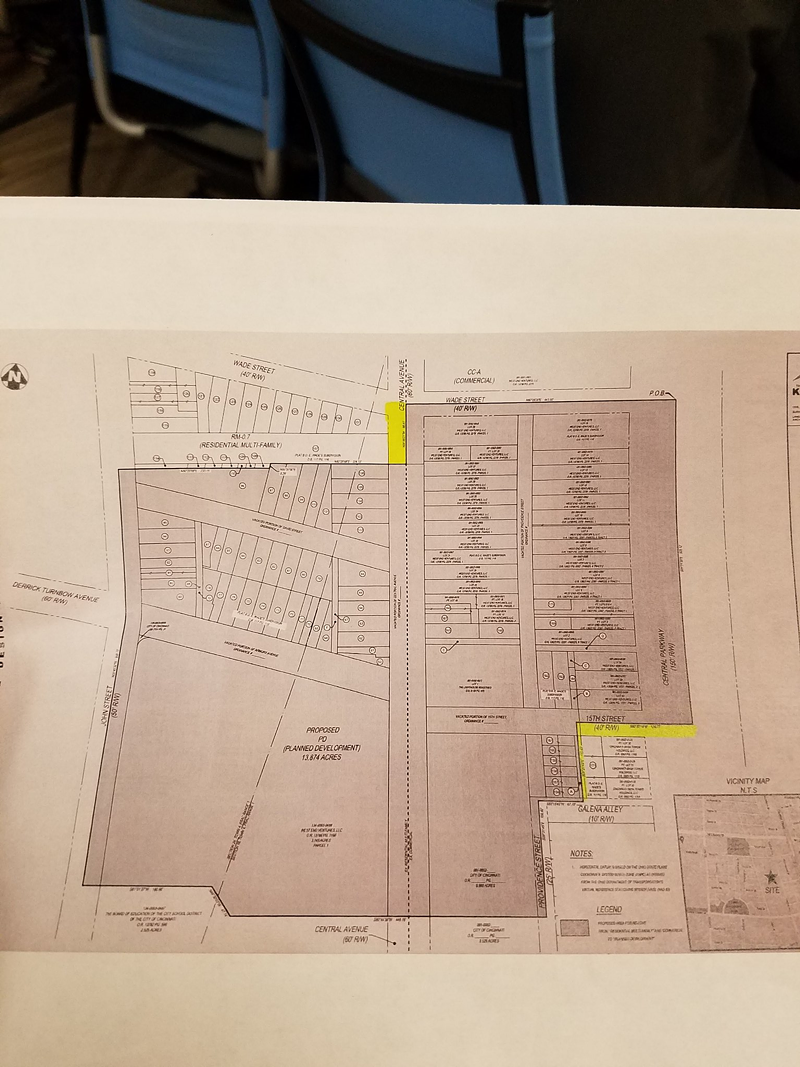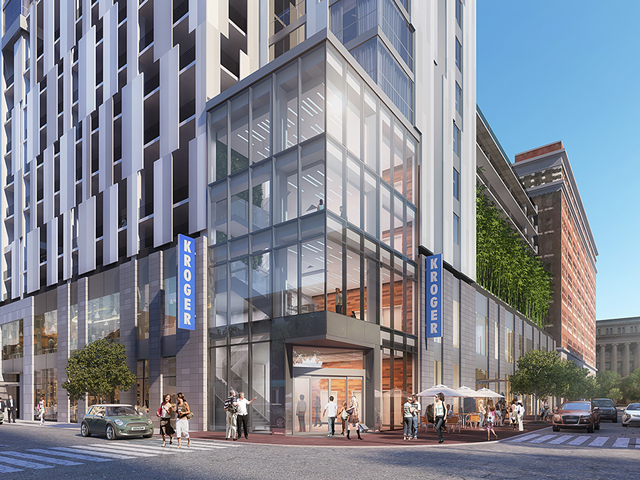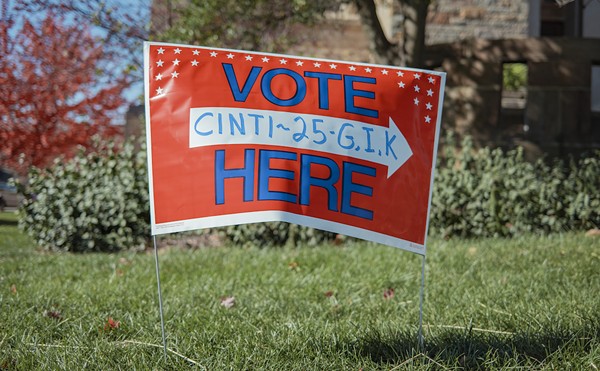
FC Cincinnati President and General Manager Jeff Berding says the team is not set up to be a landlord to Section 8 residents living in two buildings the team purchased earlier this year just north of its coming West End stadium. But, he added, he will meet with them as a group to discuss their situation.
During a press roundtable today with the team's Director of Community Development Mark Mallory, Berding at times jabbed sharply at Cincinnati City Council, which yesterday passed a motion asking the team to move residents from one of the buildings it bought from former owner Fred Berger — 421 Wade St. — to another it purchased at the same time at 1559 Central Ave.
Berding called the motion, introduced by council members David Mann and P.G. Sittenfeld "a threat," comparing it to an attempt to convince Children's Hospital in Avondale to contribute more money to the neighborhood as it expanded in 2017. Children's wanted council to pass zoning changes and sell city-owned right of way for that expansion at the time.
The issue became a key mayoral campaign debate point between Mayor John Cranley and his challenger, then-council member Yvette Simpson. Simpson, who had encouraged Children's to contribute more to the neighborhood, is believed to have lost the race in part due to the showdown.
"That didn't go too well for those council members," Berding said today.
The revelation that residents, including a 99-year-old woman who is bedridden, are being told to move out of buildings purchased by FC Cincinnati has kicked up a storm of controversy — and could hold up key zoning approvals for the $250 million Major League Soccer facility.
The Wade Street property was included in, then removed from, an amended zoning change the team needs Cincinnati Planning Commission to approve so it can continue work on the stadium. The Central Avenue property was not included. If the commission approves, council must also vote on that zone change.
Some council members have suggested there may not be enough votes to approve the change if displacement isn't addressed, but the motion's language makes no mention of the team's zoning application.
"City council acts as if we're some plague upon the city to be blocked at every opportunity," Berding said of the body that last year approved $34 million in public money for infrastructure serving the stadium site. He called the motion asking that the Central Avenue property be converted to affordable housing "outside the law."

The team has dropped all properties on Wade Street from its request and says council cannot legally reject its zoning change — now over two small alleyways — due to concerns about displacement. The team also says it will not enforce an April 30 move-out date originally sent to the residents, Berding said, though he stressed they will eventually need to leave the buildings.
Berding also addressed criticism about promises he made last year that no one would be displaced by the stadium.
"The notion that we’re somehow going to try to buy people’s homes out, move people out of the neighborhood, that’s just false," Berding said in January 2018. "That’s just made up."
Berding today said the team made those assurances because there were no homes in the footprint of the facility.
"Our stadium plan did not require that," he said about tearing down houses. "Our focus has been on getting our stadium built."
Three businesses and one person had to relocate when the State Theater, which was within the stadium site, was torn down earlier this year.
Now, critics of the team say others are being displaced — residents who will struggle to find more affordable housing in a city with a reported 30,000-unit shortfall for its lowest-income citizens.
But the team says that assertion is unfair and that Berger, after being approached by several developers, came to FC Cincinnati with the option to buy the properties. The team says it bought them because it wants to control what kind of development occurs around its stadium. Berding says what will happen to the properties has not been decided, but that a surface parking lot could be one option. What is clear — the team wants the residents there to move eventually.
"The way the law works, when you sign a lease, the owner has some rights, and so do the tenants," Berding said. "I can't imagine it's unusual that someone buys low-income housing and decides it's more profitable as market rate."
It is unclear when Berding will meet with residents directly, though he indicated it could happen as soon as tomorrow and no later than Monday.
More than a dozen people live in the two buildings, though a few have found other housing options. The rest, organized by the Greater Cincinnati Homeless Coalition, have blasted the team for not meeting with them directly. Instead, FC Cincinnati has attempted to communicate through Berger, who has stayed on as property manager at his former buildings. That, residents say, is disrespectful.
"I'm very sympathetic to people moving," Berding said, relating a story about his family moving to make way for demolition when he was a child. "We are going above and beyond what the law requires to help them. As we should. But at the end of the day, the owner decided to sell his buildings. Someone else could have bought them. We are not landlords... we are a soccer team."





